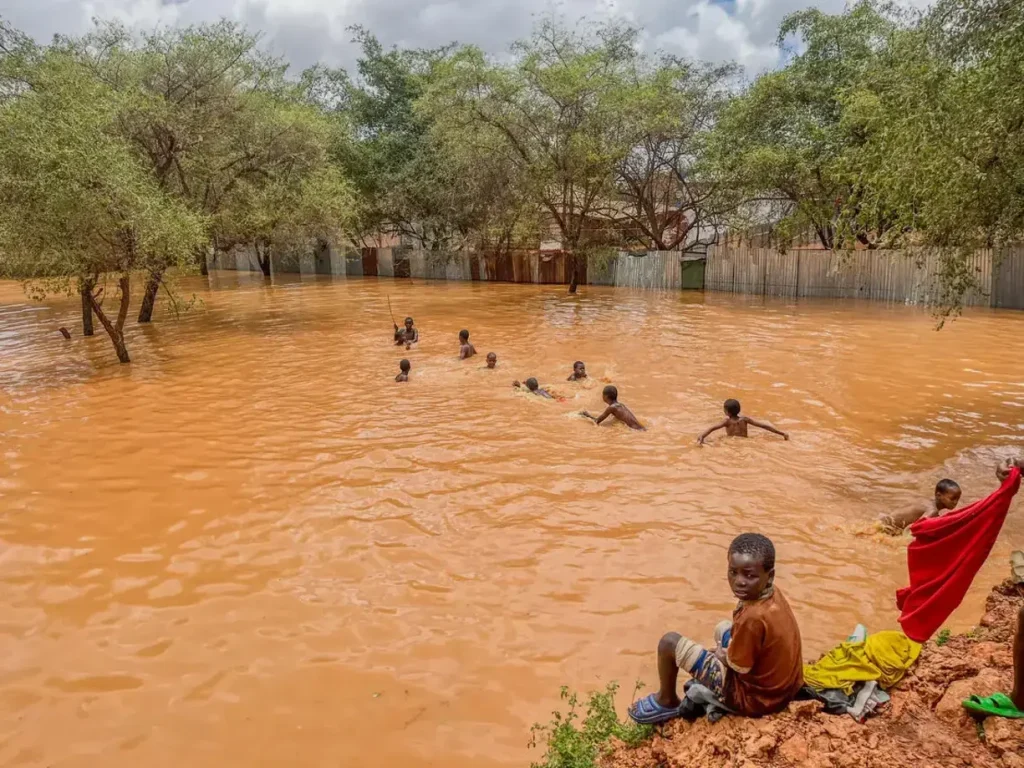2023 was a year of climate change carnage in Africa. Extreme weather claimed the lives of at least 15, 700 people. According to a report from Carbon Brief, they lost their lives to disasters, from flooding to intense heatwaves. Another 34 million were affected.
These scary numbers represent a human emergency on a never-before-seen scale.
Most of the deaths were in Libya alone. More than 11, 300 people died in September when Storm Daniel caused two dams to overflow in the coastal city of Derna. In the catastrophic flooding that followed, people and buildings were washed out to sea. Researchers believe climate change was to blame for increasing the probability and intensity of this extreme weather event by as much as 50 percent.
More than 20 flood disasters occurred across the African continent, cutting across numerous countries.
Kenya experienced torrential rains in early November, followed by flooding that forced 4,000 families to flee their homes. As many as 1 000 livestock died and 97 hectares of farmland were wiped out. After the floods, communities faced the risk of waterborne diseases, food shortages, and the hard task of rebuilding.
A group of international scientists has concluded that human-induced climate change increases the severity of the drought in parts of Africa.
“State fragility and conflict, as well as the length of the drought played a significant role in worsening outcomes, especially for people in Somalia. Further, the severity of impacts linked to the long duration of the drought also raises serious questions about the length of droughts that government drought management systems and the international aid infrastructure should be prepared to handle in the future,” they point out.
Tropical cyclones are also wiping out the economic lifelines of many communities. Tropical Cyclone Freddy, which began its path of destruction in February, persisted for 34 days. Freddy impacted Madagascar, Mozambique, Mauritius, Malawi, Réunion, and Zimbabwe. It left at least 860 people dead, destroyed homes and farmland, and caused cholera outbreaks.
Persistent drought conditions in the Horn of Africa impacted more than 29 million people. The communities in the region are dependent on rain-fed agriculture and pastoralism, but the prolonged drought said to be the worst in some 40 years, has turned arable land to dust, caused crop failure, water scarcity, and decimated livestock herds. The ripple effect is huge – people are forced to leave their homes in search of pasture and water, resulting in mass population displacement. Malnutrition rates, especially among children, have increased and as many as 4 million people in the region are now food insecure.
2023 also saw heatwaves across Southern Africa and extreme heat in Northern Africa, especially Algeria, which led to deadly wildfires. While heat waves are not officially categorised as disasters, their impact on populations is significant. Climate scientists explain that in addition to climate change, extreme events are also compounded by the El Niño weather phenomenon.
Underreporting
The Carbon Brief report points out another critical issue – Underreporting. The lack of weather stations in Africa makes it difficult to track and record extreme weather events. This is particularly true for heatwaves, which are often not recorded due to the absence of observable impacts like those seen with floods or cyclones. The lack of data and reporting on these events makes it challenging to prepare for and mitigate their impacts.
The combination of climate change, poverty, and action (or in-action) in Africa paints a complex picture. Natural disasters push vulnerable communities to the limits of their resilience, while poverty hampers their capacity to recover.
The devastating impact of several extreme weather events in one year in Africa serves as a sad reminder of the consequences of climate change. This continental crisis must bring about a climate agenda that prioritises the vulnerable, and COP28 presented an opportunity for actionable and results-oriented strategies to take centre stage. Concerned experts say the time has come to move beyond vision and mission to actively shape a future where extreme weather does not dictate the fate of Africa.

